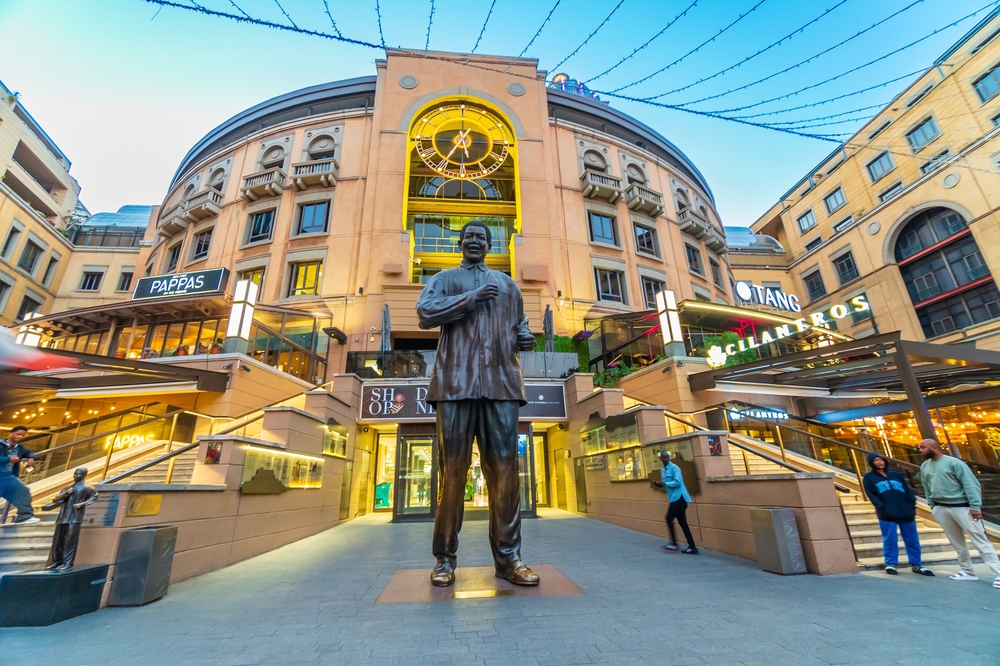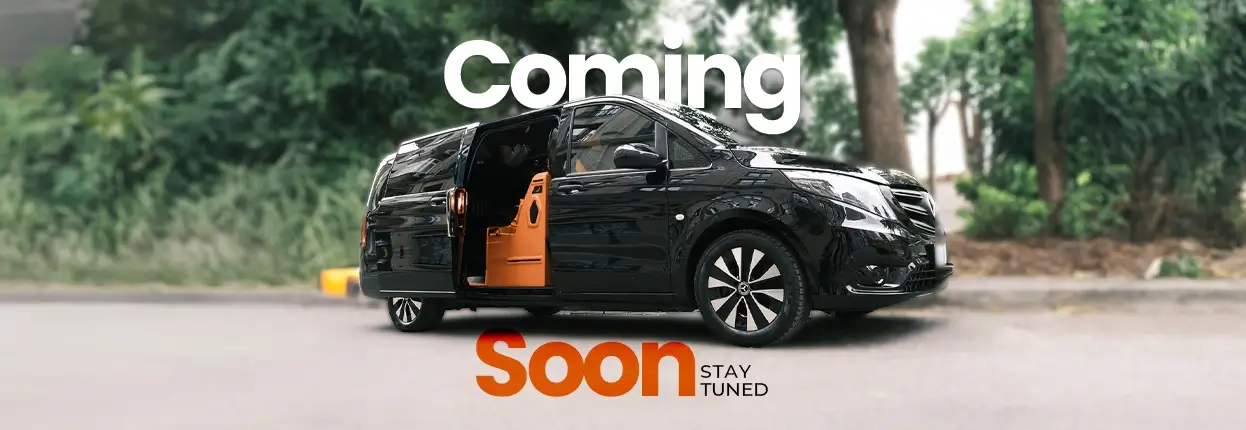johannesburg
johannesburg Travel Guide

Johannesburg, often preferred to be Jozi or Joburg, is the largest city in South Africa and a significant urban center in Africa. Located in Gauteng Province, it has a population of approximately 4.8 million people, making it one of the most populated cities on the continent and a critical economic hub.
Johannesburg is a major financial center, housing the Johannesburg Stock Exchange, the largest stock exchange in Africa. The city is also known for its diverse neighborhoods, each offering unique cultural experiences.
Things To Know Before Going To Johannesburg
Here are essential things to know when traveling to Johannesburg:
- Johannesburg is a landlocked city with a different vibe compared to Cape Town.
- While Johannesburg safety, petty crime remains a concern, particularly in areas like Park Station.
- Instead of relying solely on Uber, consider using Bolt, which often has better rates.
- Johannesburg is a city of neighbourhoods, each with its character. Areas such as Soweto, Maboneng, and Rosebank offer diverse cultural experiences, including historical tours and vibrant nightlife.
- Johannesburg has a high altitude, leading to cooler temperatures, especially at night. If visiting during winter (June to August), be prepared for chilly nights.
- Mosquito-borne illnesses can also be a concern, so packing insect repellent is advisable.
- Explore local eateries for a variety of cuisines.
- English is widely spoken, but South Africa has 11 official languages.
- Wi-Fi is available in many public areas and accommodations.
Where Is Johannesburg?
Johannesburg is located in the northeastern part of South Africa, within the province of Gauteng.
Where To Stay In Johannesburg?
Here is a table with the best attraction areas in Johannesburg:
| District | Best For | Top Attractions | Average Trip Cost |
|---|---|---|---|
| Soweto | History, culture, and township life | Mandela House, Hector Pieterson Memorial, Regina Mundi Church | $20-50 per person for a guided tour |
| Maboneng Precinct | Arts, culture, dining, and nightlife | Arts on Main, Market on Main, Bioscope independent cinema | $10-30 per person for dining and entertainment |
| Constitution Hill | Human rights history and architecture | Old Fort Prison, Women's Jail, Constitutional Court | $10-20 per person for admission |
| Gold Reef City | Theme park rides and exhibits on Johannesburg's gold rush history | Anaconda roller coaster, underground mine tour, gold panning | $20-50 per person for admission and rides |
| Cradle of Humankind | Paleoanthropology and nature | Sterkfontein Caves, Maropeng Visitor Centre, hiking trails | $20-50 per person for guided tours |
| Sandton | Shopping, dining, and luxury hotels | Nelson Mandela Square, Sandton City Mall, Montecasino Entertainment Complex | $50+ per person for dining and entertainment |
Best Hotels in Johannesburg
Johannesburg hotels offer a blend of luxury and convenience, providing exceptional services and amenities for your trip to be more comfortable. Even though luxury hotels in Johannesburg may make you break the bank, they will be worth every penny, thanks to their services. However, there are always mid-range and budget hotels in Johannesburg to enhance your days and make your city tour seamless. Tailored for everyone, finding what kind of accommodation you want won’t be as complicated as you think.
Now, here are some of the best hotels in Johannesburg we recommend and why:
Hotel | District | Affordability | Why To Stay There? |
|---|---|---|---|
| Road Lodge Southgate | Southgate | Budget | - Close to Southgate Mall and shopping options - Offers free parking and breakfast |
| Rosebank Hostel | Rosebank | Budget | - Located in the trendy Rosebank neighborhood - Walking distance to Rosebank Mall and Gautrain station |
| Garden Court Morningside Sandton | Sandton | Mid-Range | - Set in lush gardens with a lovely pool - Includes complimentary parking and breakfast |
| Genesis All-Suite Hotel | Northern Suburbs | Mid-Range | - Offers luxury apartments at affordable prices - Great for families with spacious suites |
| Four Seasons Hotel The Westcliff | The Parks | Luxury | - Overlooks the Johannesburg Zoo and posh neighborhoods - Offers stunning views of the city |
| Saxon Hotel; Villas & Spa | Houghton Estate | Luxury | - One of the best boutique luxury hotels in Johannesburg - Suites have private hot tubs |
| Protea Hotel by Marriott O.R. Tambo | Kempton Park | Mid-Range | - Located less than a mile from O.R. Tambo International Airport - Offers free airport shuttle service |
| City Lodge Hotel OR Tambo | Kempton Park | Mid-Range | - Conveniently situated near the airport terminals - Provides a free airport shuttle for guests |
| CAG The Vantage Rosebank | Rosebank | Luxury | - Features distinctive African-style decor - Close to popular attractions like the Rosebank Mall |
| Thaba Eco Hotel | Klipriviersberg Nature Reserve | Mid-Range | - Overlooks the Klipriviersberg Nature Reserve - Offers guided game walks and stunning valley views |
Best Johannesburg Attractions
Here is a bullet list of the best attractions in Johannesburg:
Apartheid Museum: It’s a museum dedicated to illustrating the apartheid era and the 20th-century history of South Africa. It features powerful exhibits, including photographs, artifacts, and film footage that tell the story of racial segregation and the struggle for freedom.
Constitution Hill: it’s a historical site that includes a former prison complex, now housing the Constitutional Court of South Africa. Visitors can explore exhibits that detail the history of political prisoners, including Nelson Mandela, and learn about the country's journey to democracy.
Gold Reef City: It’s a theme park and entertainment complex built on the site of an old gold mine. It offers thrilling rides, historical exhibits about Johannesburg's gold rush, and guided tours of the mine itself, providing a fun experience for families and history enthusiasts alike.
Soweto & Mandela House: The vibrant township of Soweto, known for its role in the struggle against apartheid, is home to Mandela House, the former residence of Nelson Mandela. Visitors can explore the house and learn about Mandela's life and legacy.
Maboneng Precinct: It’s a trendy urban area known for its arts and culture scene, featuring galleries, restaurants, and shops. The Maboneng Precinct is a hub for creative expression and hosts the famous Market on Main every Sunday.
Johannesburg Zoo: It’s a large zoo that houses a variety of animals, including many native African species. The zoo is set in a beautiful park-like environment, making it an excellent spot for family outings and picnics.
Lion & Safari Park: It’s a wildlife park where visitors can see lions, giraffes, and other African wildlife up close. The park offers guided tours and animal interactions, making it an exciting adventure for animal lovers.
Cradle of Humankind: It’s a UNESCO World Heritage site that is significant for its paleoanthropological discoveries. Visitors can explore the Sterkfontein Caves and learn about human evolution through various exhibits.
Walter Sisulu National Botanical Gardens: It’s a serene botanical garden featuring diverse plant species and birdwatching opportunities. The gardens are perfect for leisurely walks, picnics, and enjoying nature.
Lindfield Victorian House Museum: It’s a "living museum" that showcases a beautifully preserved Victorian home. Guided tours provide insight into Victorian life in Johannesburg, complete with period furnishings and stories from the home's history.
Is Johannesburg Safe For Tourists?
Johannesburg is safe for tourists, but like any major city, it has areas that are riskier than others. Tourists are often at risk of opportunistic crimes such as theft and mugging, particularly in crowded places and public transport. Specific neighborhoods, including Hillbrow, Alexandra, and parts of the CBD, are known for higher crime rates.
Is Johannesburg Expensive To Visit?
Johannesburg can be visited on a budget by staying in hostels or budget hotels, using public transit and Uber, eating at local restaurants, and focusing on free or low-cost activities. Mid-range and luxury experiences are also available for those with higher budgets. Flights are typically the most expensive part of visiting from abroad.
Currency Of Johannesburg
The official currency used in Johannesburg and throughout South Africa is the South African rand (ZAR).
Spoken Languages In Johannesburg
Johannesburg is a linguistically diverse city, reflecting the multicultural makeup of its population. The primary languages spoken in Johannesburg include:
- Zulu: approximately 23% of residents speak isiZulu as their first language.
- Sotho: about 13.4% of the population speaks Sesotho, which is the second most prevalent language.
- English: spoken by around 10.7% of residents.
- Sepedi: this language is spoken by around 12% of households.
- Setswana: approximately 9.8% of the population speaks Setswana.
How Many Days Are Enough To Visit Johannesburg?
The ideal number of days to visit Johannesburg depends on your interests and travel style, but most experts recommend spending at least 2-4 days in the city to get a good overview. Spending these periods allows you to see the top attractions and get a taste of the city’s unique personality.
When Is The Best Time To Stay In Johannesburg?
Here is a table comparing the different seasons in Johannesburg:
| Temperature (°C/°F) | Activities | Rates | Crowd | Clothing | |
|---|---|---|---|---|---|
| Summer (Nov-Feb) | 25-28°C (77-82°F) | - Outdoor activities like hiking, picnicking - Visiting parks and gardens - Attending festivals and events | - High season rates for accommodation and flights | - Crowds at popular attractions - Busier restaurants and hotels | - Light, breathable fabrics - Sunscreen and hat - Umbrella for afternoon thunderstorms |
| Autumn (Mar-May) | 21-25°C (70-77°F) | - Hiking and outdoor activities - Visiting markets and shopping - Exploring the city's culture and history | - Shoulder season rates - Some discounts on accommodation | - Smaller crowds at attractions - Restaurants and hotels less busy | - Light layers that can be added or removed - Jacket for cooler evenings |
| Winter (Jun-Aug) | 16-19°C (61-66°F) | - Visiting museums and art galleries - Exploring the city's architecture - Taking day trips to nearby attractions | - Low season rates for accommodation and flights - Discounts on activities | - Smaller crowds at popular sites - Quieter restaurants and hotels | - Warm layers like jackets and scarves - Gloves and hat for cold nights - Umbrella for occasional showers |
| Spring (Sep-Oct) | 22-25°C (72-77°F) | - Outdoor activities like cycling and picnicking - Visiting parks and gardens - Attending spring festivals and events | - Shoulder season rates - Some discounts on accommodation | - Smaller crowds than summer - Restaurants and hotels getting busier | - Light layers that can be added or removed - Jacket for cooler mornings and evenings |
What To Pack For The Johannesburg Trip?
- Light and breathable clothing for summer
- Warm layers for winter
- Waterproof clothing for rainy days
- Comfortable activewear for outdoor activities
- Comfortable hiking shoes or boots
- Sandals or flip-flops for summer
- Trainers for travel and casual outings
- Sunscreen
- Insect repellent
- Hand sanitizer
- Basic toiletries
- Personal medication
- Power outlet adapter
- Hat and sunglasses for sun protection
- Umbrella for unexpected rain
What To Eat In Johannesburg?
Johannesburg offers a vibrant culinary scene that reflects its diverse culture. Here are some must-try dishes and popular dining spots:
- Umleqwa: A traditional Xhosa-style chicken stew, rich in flavor and often served with pap.
- Pap: A staple dish made from boiled cornmeal, similar in texture to mashed potatoes, often enjoyed with meat or stew.
- Samoosas: Savory pastries filled with various ingredients, influenced by Indian and Malay cuisine.
- Boerewors: A traditional South African sausage, usually made from beef and pork, seasoned with spices.
Nightlife In Johannesburg
Here’s a summary of key areas and popular venues to explore:
Key Nightlife Areas
- Melville: Known for its bohemian vibe, Melville's 7th Street has bars, restaurants, and clubs. It's an excellent spot for a mix of quiet evenings and lively nights.
- Maboneng Precinct: A trendy area filled with creative spaces, Maboneng comes alive at night with bars, gourmet restaurants, and art events. Notable venues include Poolside and Living Room.
- Braamfontein: This youthful hub, home to the University of the Witwatersrand, features popular spots like The Orbit for live jazz and Elevate, a rooftop bar with stunning city views.
- Newtown: A cultural hotspot, Newtown is home to the historic Market Theatre and venues like Bassline for live music. It combines modernity with cultural heritage.
- Sandton: Known as Africa's richest square mile, Sandton offers upscale bars and clubs, including the Sandton Sky Bar, which provides breathtaking views of the city.
- Soweto: Famous for its rich history, Soweto's Vilakazi Street features a variety of restaurants and bars, including Chaf Pozi, which offers traditional South African braais.
Popular Nightclubs and Bars
- Razzmatazz Nightclub and Beer Garden: A lively venue in Hillbrow, open daily until 4 AM, known for its energetic atmosphere and diverse crowd.
- Liquid Blue: A 24-hour venue in Melville famous for its laid-back vibe and diverse drink offerings.
- The Base Action Bar Night Club: Located in Hillbrow, this club is known for its vibrant nightlife and is open until 2 AM daily.
- The Luxee Lounge: Situated in Maboneng, it offers a chic atmosphere and is open until 2:30 AM.
- Katzy's Live Rosebank: An upbeat cocktail bar with live music, open Thursday to Saturday until 2 AM.
- Montana The Club: A famous club in Rosebank known for its lively atmosphere and late-night hours.
- Six Cocktail Bar: Located in Melville, this bar is known for its extensive cocktail menu and vibrant ambiance, open until 2 AM daily.

